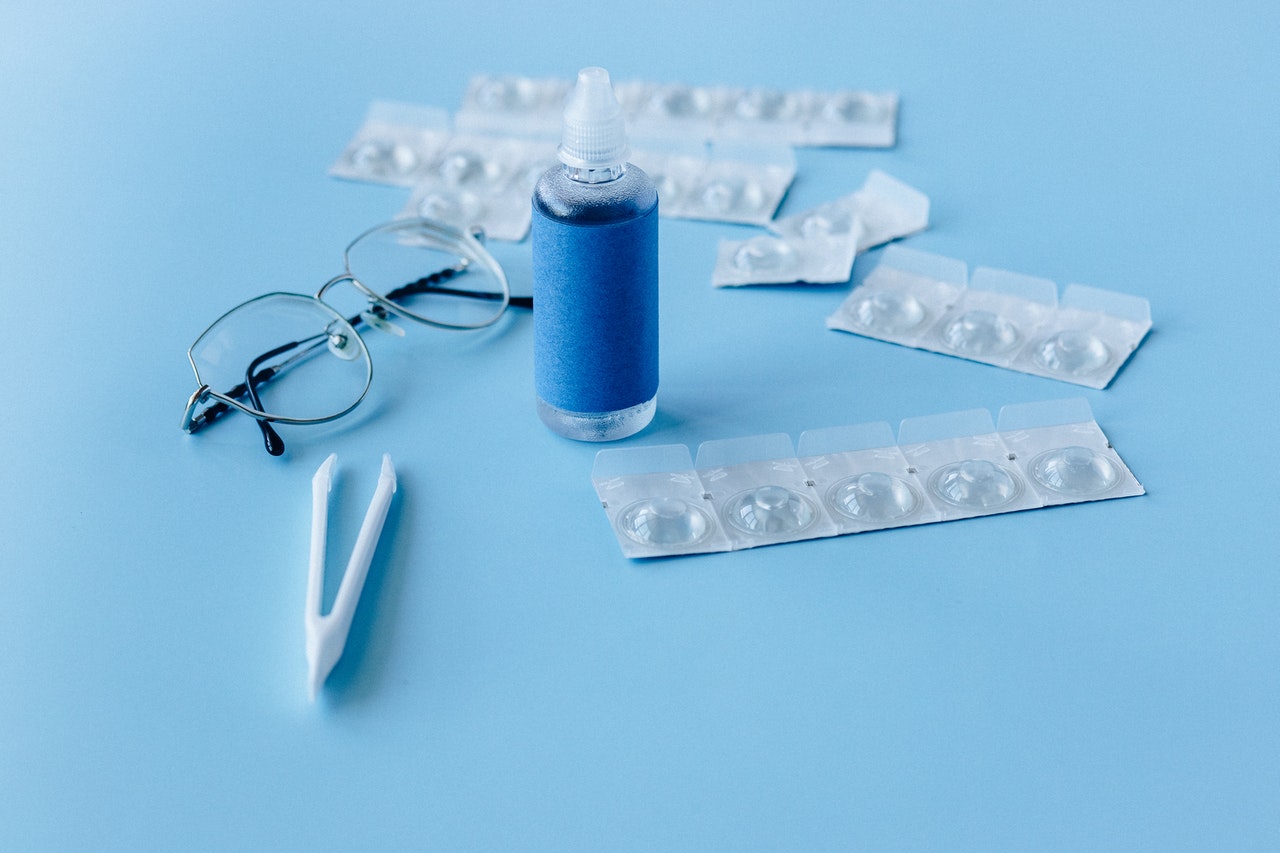Aris Konstantopoulos and Parwez Hossain are both consultant eye surgeons at University Hospital Southampton NHS Trust. They specialise in conditions of the cornea, the clear window at the front of the eye, and they regularly treat patients with contact lens related problems.
Over the years they have treated many patients with complications of contact lens wear, the worst being sight-threatening corneal infection or microbial keratitis as it is termed in medical jargon. A few patients have even had to have their eye removed because of the infection not being treatable.
Their concern in the large number of patients presenting with such infections stimulated a piece of research where they looked into how behavioural patterns, such as sleeping or showering in lenses, may affect the risk of developing a corneal infection. Interviews were conducted where patients with corneal infection due to contact lens wear were asked questions, including how many hours they wore their lenses, whether they showered with lenses, whether they slept in their lenses, whether they washed their hands, where they bought their lenses, and whether they were informed of the risks of contact lenses on purchase.
You can find the original research here.
Over a 3-month period, 37 cases of infection due to contact lens wear were interviewed; their responses were compared to responses of 41 contact lens wearers with no lens problems. Showering in contact lenses was found to be the greatest risk factor for developing an infection; individuals who showered with lenses in their eyes were 7 times more likely to develop an infection compared to individuals who didn’t shower in lenses. Sleeping in lenses was also identified as a risk factor; individuals who slept with their lenses in their eyes were 3 times more likely to develop infection. Tap water contains an abundance of bugs (microbes) that should not normally come into contact with contact lenses, as these bugs can attach to and colonise the lenses. Contact lenses do dry out the surface of the eye and deprive it from oxygen; this effect is made worse when sleeping in lenses, allowing the bugs to enter the cornea and cause an infection.
Just below we reproduce top tips if you wear soft contact lenses by the Association of Optometrists:
- Good lens wear and care is essential to prevent avoidable eye problems. Wash your hands and dry them thoroughly before using any type of contact lens and follow all the recommended procedures
- Never use tap water to clean lenses – this could lead to serious problems, including corneal ulcers and eye infections. Follow the manufacturer’s directions for cleaning, disinfecting and wearing the lenses
- Don’t change how you clean your contact lenses without asking your optometrist or optician first
- Replace your contact lens case regularly to reduce the risk of infection and always use fresh solution to store your lenses
- You shouldn’t wear your lenses for longer than you have been told by your optometrist, and certainly not for more than 16 hours in a day. You should never sleep in them unless they are specifically designed for overnight wear
- Don’t bathe or go swimming in your contact lenses unless advised you can by your eye care practitioner
- Never share or swap contact lenses with anyone else
- If you wear eye make-up, always apply it after putting your contact lenses in
- Go to regular after-care appointments with your optometrist – at least once a year or more often if your optometrist recommends it, or if you have problems
- If in doubt, take them out. If you experience any signs of redness, pain or loss of vision – consult your optometrist or optician immediately for advice
Another interesting finding of the study by Aris and Parwez was that 86% of patients were going to continue to wear contact lenses in the future despite having developed a significant complication. This highlights the perceived safety or trust that contact lens wearers may have in lenses but also importantly the determination of lens wearers not to return to spectacle wear. Studies have shown that the main reasons one may choose to wear contact lenses rather than spectacles include appearance (aesthetics), the inconvenience of spectacles and also the ease of participation in sports. Interestingly, these are the same reasons for which individuals choose to have laser eye surgery.
In the UK there are over 4 million contact lens wearers who are happy with the convenience and visual improvement lenses provide; contact lens wear is very safe and safer than ever. However, over a ten-year period of lens wear, it is estimated that the risk of an infection developing is 1 in 50 for extended wear lens wearers and 1 in 250 for daily disposable lens wearers. In comparison, the risk of infection following laser eye surgery is 1 in 3000 or less. If you are experiencing dry or red eyes with your contact lens wear, you may be particularly susceptible to infection. Reducing the hours you wear the lenses and possibly a contact lens holiday for one day a week may reduce the risk of complications.
If the discomfort persists or becomes recurrent, contact lens intolerance may be developing; contact lens wear should be discontinued until review by your optometrist or ophthalmologist. Other vision correction options, such as glasses and laser eye surgery, may be considered at this stage. In fact, LASIK has been shown to reduce dry eye symptoms in patients who were experiencing dry eyes with their contact lens wear.
To find out more, you can contact us at anytime on 02381 810001 to book a free e-consultation or just for general advice. Alternatively, book a free e-consultation online.






